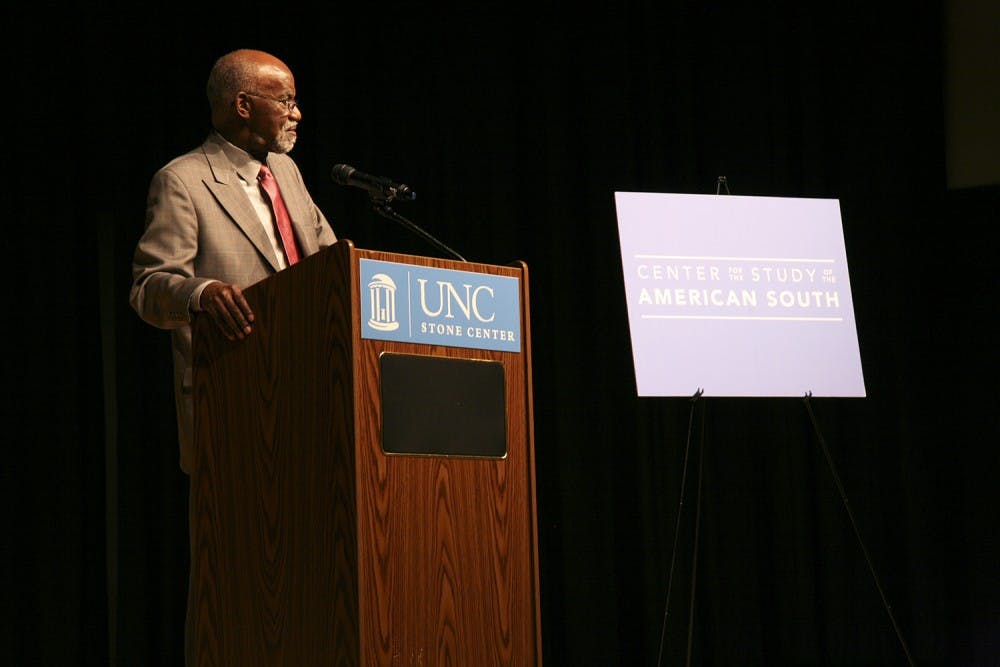“Although technologically, everything was different at the beginning of the 21st century — not enough had changed,” Ferguson said.
Though desegregating schools was an enormous leap for the U.S., schools that were once desegregated through court processes have now largely resegregated, Ferguson said.
“If our schools don’t become a melting pot, the world can’t either,” he said. “Education can have a negative impact if it separates us as children.”
Along with noting the disproportionate incarceration rates of people of color, Ferguson remarked on the American response to the 2008 election of Barack Obama that, in some cases, was negative.
“When we talk about the color line no longer playing a role in American life, we’ve got to ask ourselves the question: What about what’s happening at the highest level? Has the color line just shifted upwards?”
Ferguson said though racists might no longer be wearing white sheets, destructive attitudes toward race have not disappeared.
“Make no mistake about it, the challenge is there,” he said. “And the question to ask is: are we up to the challenge?”
Sophomore Victoria Hamby agreed with Ferguson’s opinion that increased technology has limited the ability of members in communities to commit to causes and to one another.
“It’s incredible to see (Ferguson’s) role pre-Voting Rights Act to today,” she said. “I think a lot of people get involved in things and then discover that they’ve had enough, and technology probably plays a huge role in that.”
Sophomore Allison Orman said the lecture was not what she had expected.
“I thought it was going to be more of a celebration – like, ‘here’s what we’ve overcome,’” she said. “But he wanted to make us aware of the fact that we’re still facing the same struggles. They’re still real, just happening in a different way and in a different time.”
university@dailytarheel.com
To get the day's news and headlines in your inbox each morning, sign up for our email newsletters.




